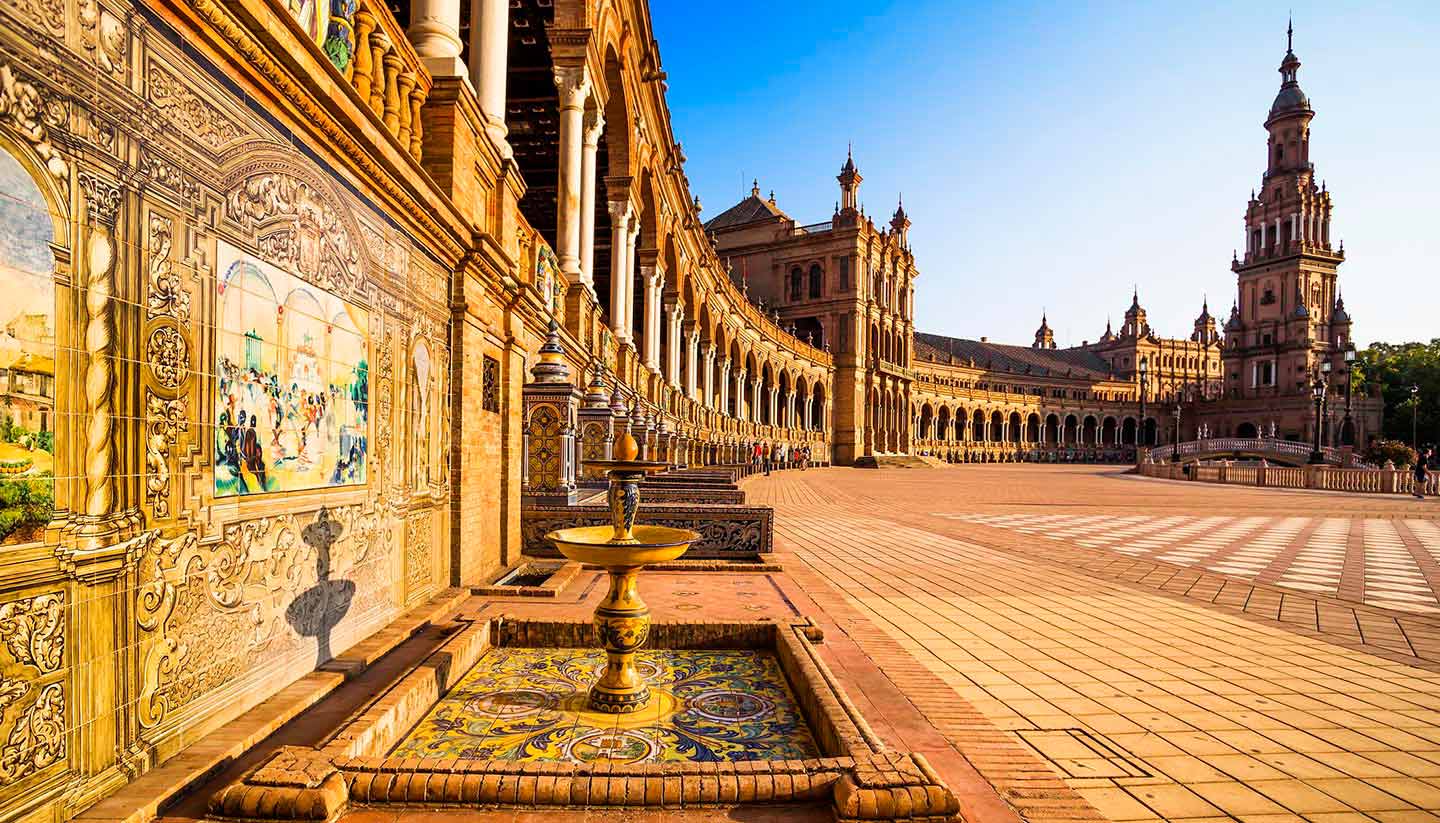Shopping in Seville
Seville is home to sprawling local produce markets and Andalusia artisans. If you’re looking for souvenirs to bring back home, this is the best place to stock up on local products, and for the latest in fashion, the city is packed with the usual shopping chains and boutiques.
Key areas
The heart of Seville's shopping district is Calle Sierpes and the streets running parallel - Calle Velazquez Tetúan and Calle Cuna. Here you'll find a vast array of both traditional and designer shops. Waft yourself silly with all types of traditional fans at Dizal, Calle Sierpes 48, or check out the original, artisan ceramics at Sevillarte, Calle Sierpes 66.
Markets
The biggest open-air markets in Seville are the Mercadillo del Jueves along Calle Feria (Thurs 0700-1500) and the Mercadillo del Duque y la Magdalena at Plaza del Duque (Thurs-Sun 1000-2100). The first market specialises in antiques, paintings and collectibles, while the latter focuses on fashion, accessories and general items.
Shopping centres
Nervión near Santa Justa station is a massive mall containing several department stores and boutiques. The old railway station of Plaza de Armas also houses numerous fashion chains like ZARA and Bershka. The Metropol Parasol complex, known locally as Seville’s Mushrooms, houses a market, shops and Archaeological Museum. The city is also home to Spain’s favourite department store, El Corte Inglés.
Opening hours
Most shops in Seville open at 0930 or 1000, closing at 1330 or 1400 for siesta and reopening at 1700 until 2000 on weekdays. On Saturdays they generally only open for half a day and on Sunday remain closed, but several bigger stores stay open all day, including Saturdays.
Souvenirs
Many of the typical Spanish souvenirs can be found in Seville, and this is one of the best cities to buy them too, with elegant lacy fans, castanets and frilly flamenco dresses all available. Calle Francos is the best place to buy the latter, however if you’re after something more than just the touristy type, expect to pay a hefty sum.
The city is perhaps best known for its production of colourful tiles and ceramics. To find the best of these, head to the old gypsy quarter of Triana, where you’ll find many small ceramic stores and even workshops where you can watch them being made.
Tax information
IVA (value added tax) of 21% is charged on most goods and services in Spain. Upon departure, visitors from outside the EU, who have been in the EU for less than 180 days, can get a VAT refund from the airport on goods worth €90 or more.


